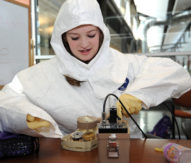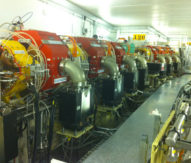
Report: EU should take more risks
A report by Robert Madelin asks the EU to spend on new medicines, genomics, the human brain research and applications of quantum physics, and says EU administrators need to make riskier investments.
Madelin, a former director general at DG Connect and now advisor on innovation at the European Political Strategy Centre, the commission’s new think tank, makes suggestions for making Europe more innovation friendly.
By simplifying the administrative difficulties in applying to the EU Horizon 2020 research programme, Madelin says that the current funding rules are often unfit for purpose.
“The conditions for EU funding,” the report says, “continue to deter some excellent teams in some excellent institutions from even bothering to read the H2020 calls.”
“Budgetary and control authorities need to give approval for funds to flow less tidily if we are to truly support innovation. Funders must have discretion to give greater weight to critical mass bets and less to spreading support thinly across a score of clusters doing much the same thing.”
Madelin specifies the Eindhoven University of Technology as having a strong entrepreneurial environment, producing a very high proportion of highly cited papers.
Of its 300 professors, 150 work full-time, with “the other half [being] part-time, and about 80% of staff in this group are employed by industry, splitting their time between working at the university and working in business. The university funds half the cost of long-term research programmes with industry, as long as the academics involved can secure the rest of the funding from business, but refuses to conduct research with industry that cannot be published.”
The report also suggests that EU public services could benefit from reform, exemplifying cross-department innovation task forces in the commission and European Parliament as one method.
Madelin says he is interested in better engagement within the institutions that would see them fill “with passionate, self-starting creatives rather than merely obedient and diligent experts.”
Madelin’s full report is available here.




